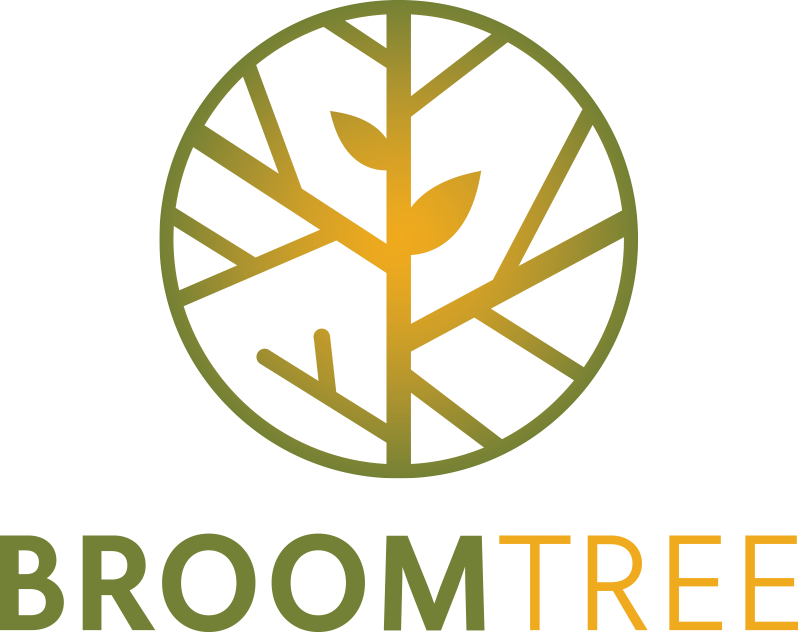A Map for Leadership Health
We would rather be ruined than changed.
We would rather die in our dread
Than climb the cross of the moment and see our illusions die.
― W.H. Auden
Though Jesus told us plainly, “It’s not the healthy who need a doctor,” most of us consistently misdiagnose our true condition and our urgent need of the Great Physician’s ongoing help. I know I did. And I’ve also learned that I’m not alone.
One of the big questions we want to explore at Broom Tree is what makes for health, wisdom, and resilience among leaders in a local church.
By leaders we don’t just mean pastors or paid ministry staff. We mean those women and men who set the ethos and shape the culture in any particular community. Just as a thermostat sets the temperature in a home, so certain men and women act as thermostats in a local worshipping community, setting the spiritual temperature, determining the climate.
The church in the West is in crisis today. The signs are all around us. According to the recent book The Great Dechurching, “More people have left the church in the last 25 years than all the people who became Christians from the First Great Awakening, Second Great Awakening, and Billy Graham crusades combined.”
As the causes are diverse, so the remedies need to be varied. But one area that needs attention is a more comprehensive vision of what holistic health looks like in a leader’s life.
We may sincerely desire to be healthy. But more than a few of us lack a wholehearted vision of what deep and thorough healing entails. We might be impressively educated, our heads filled with razor-sharp theological acumen and nuance, but neither our learning nor our carefully chosen words mean that we are spiritually mature. Jesus said that wisdom is known by her children (Luke 7:35) and James adds that it will be manifest in our relationships (James 3:13ff).
Is it possible that our understanding of what makes for health, wisdom and resilience among leaders in a local church is too narrow, distorted, and incomplete? Do we have difficulty translating what we know in our heads to what we experience in our hearts and express in our relationships?
When it’s your job to know things, as it is for a pastor, it can be hard to see, much less admit, what we don’t know. The only thing worse than being blind is being blind to your blindness.
We need help to become more healthy, more whole, more human. This map is a tool in that endeavor. Like any map, it’s intended to help us on the journey toward our desired destination.
Why a Map (and not a checklist)?
Our initial impulse was to provide a health checklist: items to be aware of and monitor to determine your ongoing health, akin to vital signs for a healthy patient.
But checklist suggests something false, even misleading, as if these subjects were merely information to digest, or boxes to check, “Got that covered, next!” We will never come to the end of this journey in this life. And even when we think we “know” something, insight and information alone are not transformational.
Map points to the complex truth that transformation is a continuous journey. Map conveys that change is not a linear progression, but a circuitous road, an unusual path, one that is often slow and always painful, involving a wilderness or desert, a cave, a cross.
Just as the earliest maps were in constant need of revision as we explored further and learned more, so this vision of what makes for wholehearted health and maturity needs to be always expanding and refined. In that sense, this is a living document.
There’s nothing new under the sun. To take one example, just as Copernicus and Galileo compelled us to read our Bibles better, so recent seismic discoveries in brain science and the place of emotions in our mindset have caused us to be wonderfully surprised, yet again, at how God’s Word perennially speaks to the complexities of the human experience. It was always there, waiting for our discovery, but recent exploration requires us to update our maps.
This map was put together in conversation with many practitioners from diverse backgrounds. All oversights and omissions are due to cartographer error. All feedback is welcomed as an opportunity to learn. Over the course of the coming months, each of the points on the map will be explored. Scroll further for a listed view of ideas we will cover.

Spiritual Maturity: Depth Awareness of Gospel Dynamics
Spiritual Maturity: A Life of Continuing Conversion
Spiritual Maturity: A Cruciform Vision of Human Flourishing
Spiritual Maturity: Rhythms and Habits for Personal Health
Spiritual Maturity: The Practice of Rest
Spiritual Maturity: Solitude and Silence
Spiritual Maturity: The Bible in a Leader’s Life
Spiritual Maturity: Learning to Pray in the Middle of Your Calling
Spiritual Maturity: The Hard Work of Staying Healthy
Spiritual Maturity: Portrait of a Mature Disciple
Spiritual Maturity: The Freedom of Embracing a Low Anthropology
Spiritual Maturity: Becoming Human
Spiritual Maturity: Becoming Human
Emotional Health: What is Emotional Health
Emotional Health: How Do I Know if I’m Emotionally Healthy
Emotional Health: What are Emotions and How Do our Emotions Relate to our Thoughts?
Emotional Health: A Whole-Brained, Wholehearted Spirituality
Emotional Health: How Your Past Shapes Your Present
Emotional Health: Learning Your Story: Looking Back to Move Ahead
Emotional Health: Accessing Distressing Emotions like Anger, Sadness, and Fear
Emotional Health: Anxiety in a Leader’s Life
Emotional Health: Learning to Grieve
Emotional Health: Leading in Vulnerability
Emotional Health: Addicted to Stress and Drama
Emotional Health: Getting to Know and Befriending Your Shadow Side
Emotional Health: Overcoming Shame and Our Fear of Being Known
Emotional Health: Talking Back to Other Voices
Emotional Health: Learning to Love as the Measure of Spiritual Maturity
Emotional Health: Humility as the Measure of Sanity and Health
Emotional Health: What is Breath Prayer?
Relational Wisdom: What is a Friend and the Necessity of Spiritual Friends
Relational Wisdom: The Need for a Wise Counselor (and how you know you’ve found one)
Relational Wisdom: A Seasoned Mentor
Relational Wisdom: What is a Spiritual Director
Relational Wisdom: How to Navigate Conflict
Relational Wisdom: How to Have Difficult Conversations
Relational Wisdom: A Theology of Excellence for the Local Church
Relational Wisdom: A Theology of Cruciform Power in the Church
Relational Wisdom: A Theology of Cruciform Ambition in the Local Church
Relational Wisdom: Setting a Gospel Culture on your Team
Relational Wisdom: A Culture of Forgiveness: What is it and How to do it?
Relational Wisdom: A Culture of Reconciliation
Relational Wisdom: How to Apologize
Relational Wisdom: Boundaries and Limits in a Leader’s Life
Relational Wisdom: Marriage and Singleness
Relational Wisdom: Parenting as a Church Leader
Relational Wisdom: Becoming and Remaining an Approachable Leader
Relational Wisdom: The Politics of Ministry

Spiritual Maturity
- Am I a Healthy Leader?
- Depth Awareness of Gospel Dynamics
- A Life of Continuing Conversion
- A Cruciform Vision of Human Flourishing
- Rhythms and Habits for Personal Health
- The Practice of Rest
- Solitude and Silence
- What is Meditation?
- The Bible in a Leader’s Life
- Learning to Pray in the Middle of Your Calling
- The Hard Work of Staying Healthy
- Portrait of a Mature Disciple
- The Freedom of Embracing a Low Anthropology
- Becoming Human
- Redefining Sin and Repentance
Emotional Health
- What is Emotional Health?
- How Do I Know if I’m Emotionally Healthy
- What are Emotions and How Do our Emotions Relate to our Thoughts?
- A Whole-Brained, Wholehearted Spirituality
- How Your Past Shapes Your Present
- Learning Your Story: Looking Back to Move Ahead
- Accessing Distressing Emotions like Anger, Sadness, and Fear
- Anxiety in a Leader’s Life
- Learning to Grieve
- Leading in Vulnerability
- Addicted to Stress and Drama
- Getting to Know and Befriending Your Shadow Side
- Overcoming Shame and Our Fear of Being Known
- Talking Back to Other Voices
- Learning to Love as the Measure of Spiritual Maturity
- Humility as the Measure of Sanity and Health
- What is Breath Prayer?


Relational Wisdom
- What is a Friend and the Necessity of Spiritual Friends
- The Need for a Wise Counselor (and how you know you’ve found one)
- A Seasoned Mentor
- What is a Spiritual Director?
- How to Navigate Conflict
- How to Have Difficult Conversations
- A Theology of Excellence for the Local Church
- A Theology of Cruciform Power in the Church
- A Theology of Cruciform Ambition in the Local Church
- Setting a Gospel Culture on your Team
- Setting a Gospel Culture in your Church
- A Culture of Forgiveness: What is it and How to do it?
- A Culture of Reconciliation
- How to Apologize
- Boundaries and Limits in a Leader’s Life
- Marriage and Singleness
- Parenting as a Church Leader
- Becoming and Remaining an Approachable Leader
- The Politics of Ministry
Inspiring A New Level Of Growth



In the last 30 years, 40 million people who used to attend church stopped their participation. Broom Tree Media exists for those who want to love the church – and who wish the church could do better and be better.
A recent study reported that 46% of pastors under the age of 45 say they are considering quitting full-time ministry. Broom Tree Media offers content and support to care for struggling leaders, and to imagine alongside them a model of leadership that leads to flourishing for leaders and their communities.
Research shows that 92% of individuals who actively engage with faith-based content online report a positive impact on their spiritual growth and connection with God. Broom Tree Media's online resources and content can contribute to the spiritual development and well-being of individuals seeking to deepen their faith.
Nurturing Faith. Inspiring Community.
Rest
Living Water
Renewal
Guidance
Insights
Journeys
Encounters
